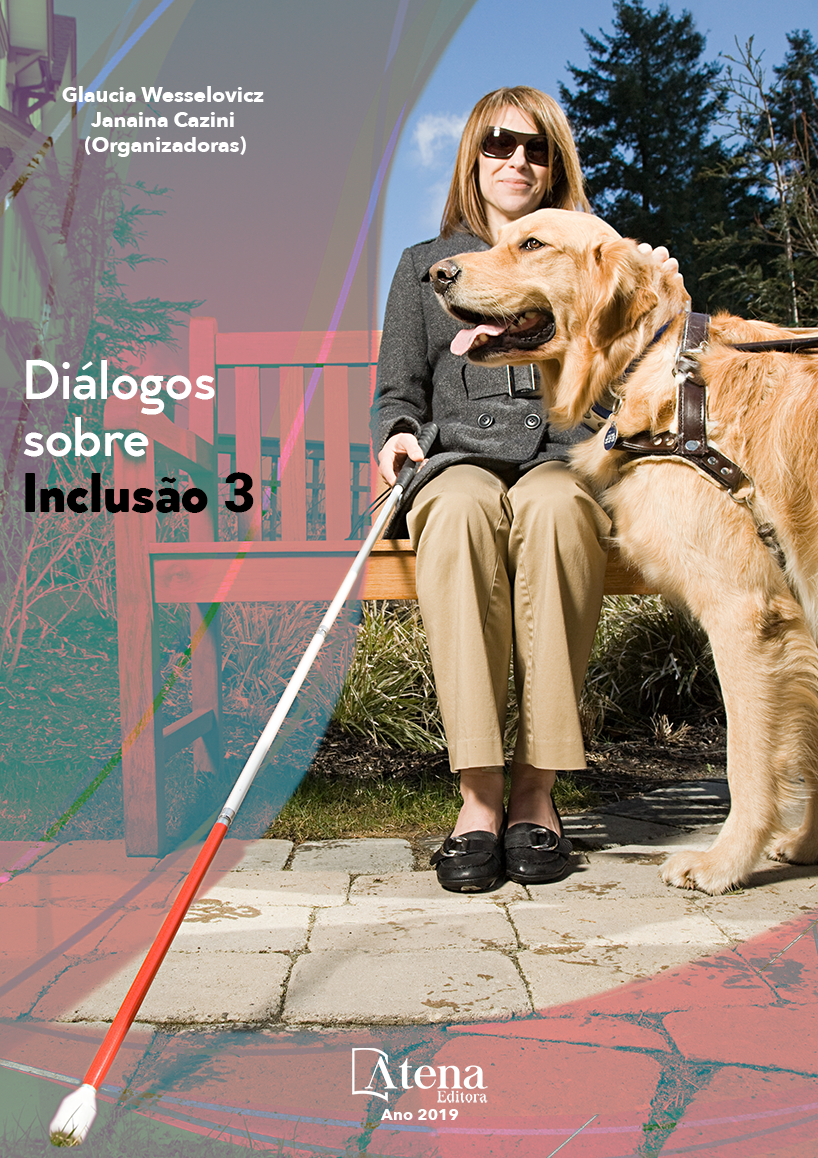
DISCUSSÕES SOBRE A LUDICIDADE NO ENSINO DE LÍNGUA PORTUGUESA PARA SURDOS
O presente estudo traça uma
breve discussão a respeito da ludicidade
nas metodologias do ensino de Língua
Portuguesa, tendo como público principal os
discentes surdos. É notório nos dias de hoje
que a educação de surdos tem ganhado muita
visibilidade, porém não podemos dizer que ela
não precise melhorar. Comparando o panorama
da educação de surdos em 1880 com o de
agora, percebemos que os surdos tiveram um
grande salto na luta pelos seus direitos, pois
atualmente eles têm sua Língua reconhecida
nos estudos linguísticos e também nos meios
legais. No Brasil, a lei nº 10.436 de 24 de abril
de 2002 reconhece a Língua Brasileira de Sinais
como meio legal de comunicação. Porém,
não podemos esquecer que o surdo precisa
aprender a Língua Portuguesa, visto que é a
língua oficial do país onde vivem. Frente a isso,
procuramos nessa pesquisa traçar uma análise
de como se dá o ensino de Língua Portuguesa
para surdos e sugerir estratégias lúdicas para
que os professores dinamizem suas aulas.
Para o embasamento desta pesquisa, fizemos
leituras de artigos científicos bem como
livros que tratam da temática abordada nesta
pesquisa. Consideramos esse estudo de grande
importância, pois o tema escolhido é pouco
discutido e necessita ganhar mais visibilidade.
Esperamos que este trabalho sirva de suporte
aos docentes que procurem modificar suas
metodologias para o ensino dos surdos.
DISCUSSÕES SOBRE A LUDICIDADE NO ENSINO DE LÍNGUA PORTUGUESA PARA SURDOS
-
DOI: 10.22533/at.ed.64419280513
-
Palavras-chave: Ludicidade, Língua Portuguesa, ensino, aluno surdo.
-
Keywords: Playfulness, Portuguese Language, Teaching, Deaf Student.
-
Abstract:
The present study draws a brief
discussion about playfulness on methodologies
of Portuguese Language teaching, with main
audience the deaf students. It’s notorious
nowadays that Deaf Education has gained a lot
of visibility, however we cannot say that It does
not need be improved. Comparing the overview
of education of the deafs in 1880 with the one of
present days, we realize that the deaf people have made a great leap in the struggle for
their rights, as they currently have their language recognized in linguistic studies and
also in legal means. In Brazil, the law nº 10.436 from 24 April, 2002 recognizes the Sign
Brazilian Language as legal mean of communication. Nevertheless, we cannot forget
that the Deaf needs to learn Portuguese Language, since it is the official language of
the country where they live. For that reason, we aim with that research to draw up an
analysis about how happens the Portuguese Language teaching to deaf students and
to suggest playful strategies for teachers stimulate their classes. To the theoretical
basis of this research, we made readings of scientific articles as well as books that
deal with the topic addressed in this research. We consider this study very important,
because the chosen theme is little discussed and needs to gain more visibility. We
hope that this study be a support for teachers who seek modify their methodologies to
teach deaf students.
-
Número de páginas: 15
- Daniela Valdevino Lima
- Geórgia Maria de Alencar Maia
- Valquíria Carneiro da Silva
- Cássia da Silva
- Luiza Valdevino Lima


